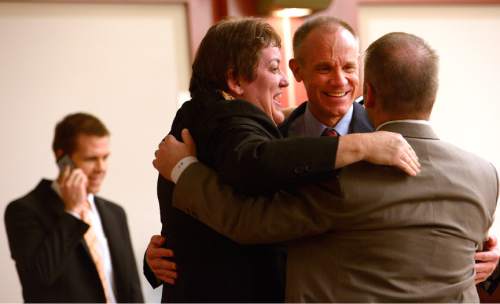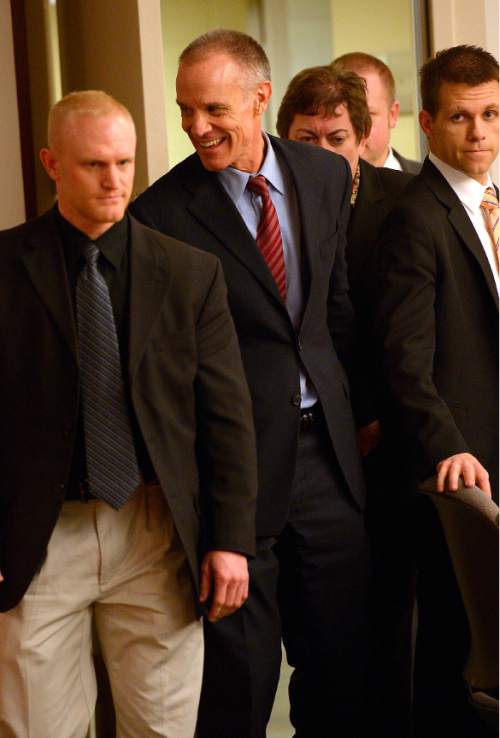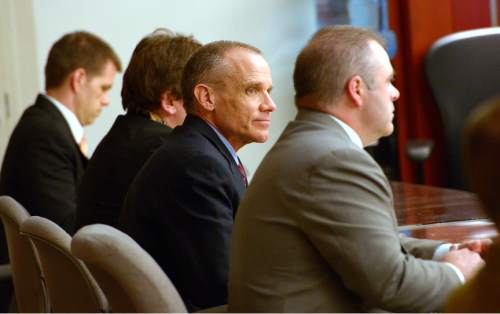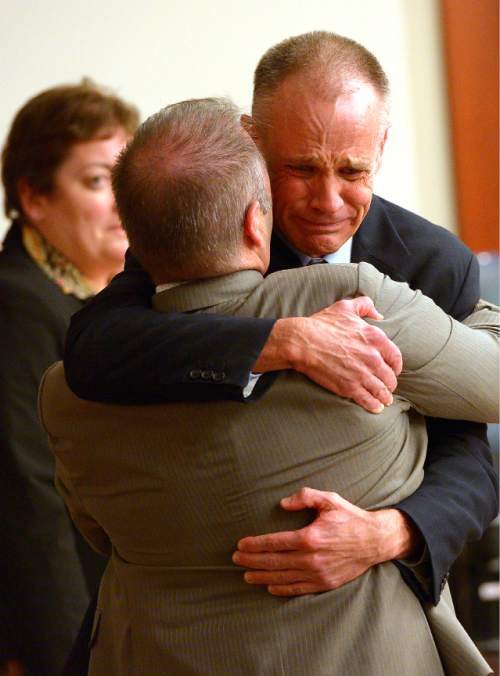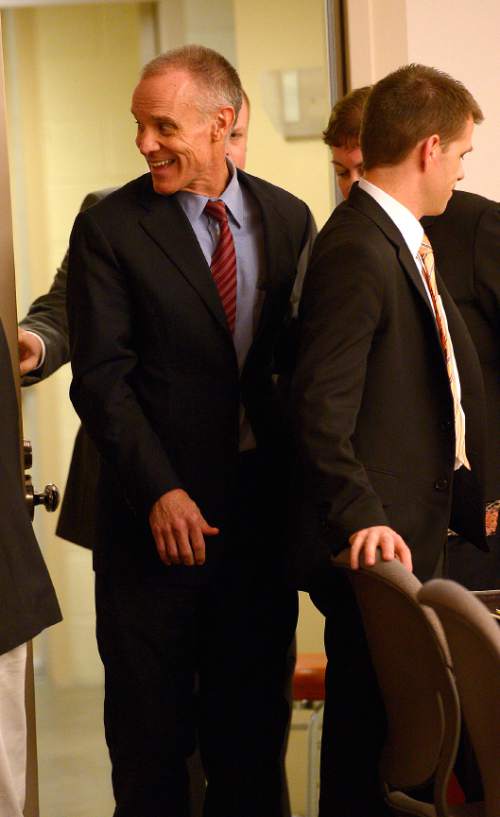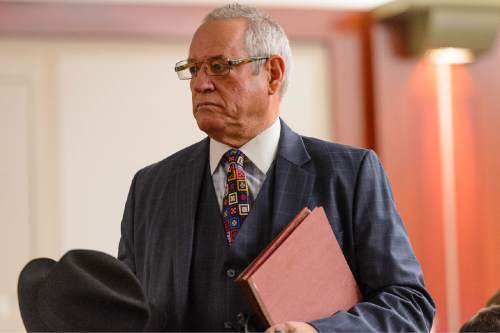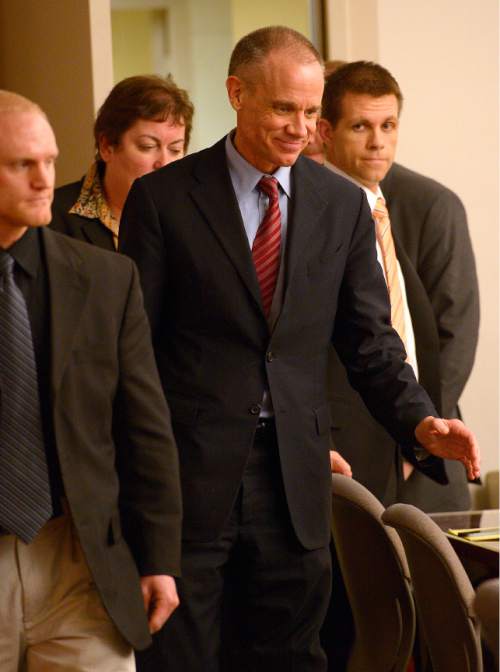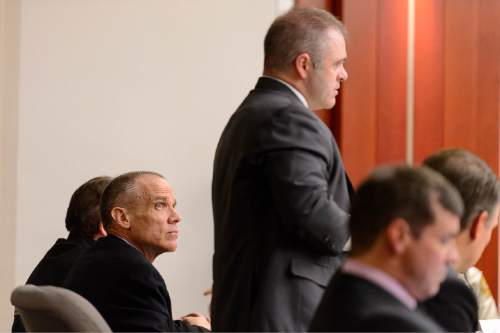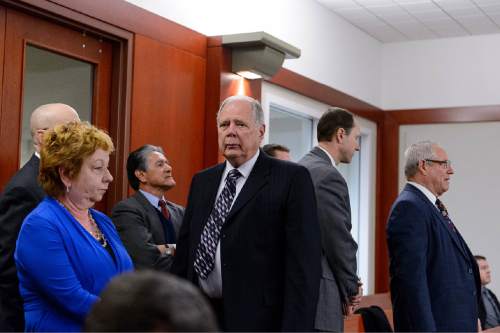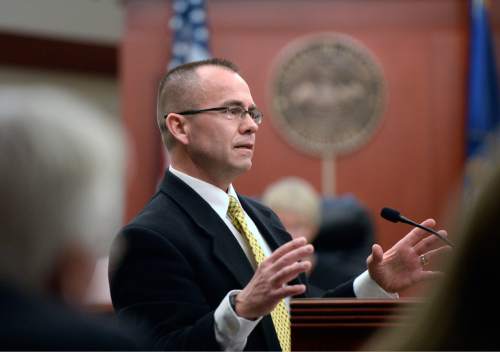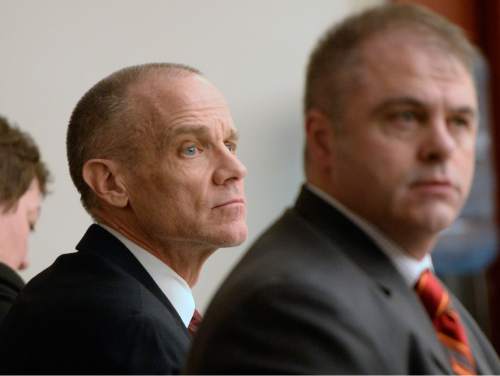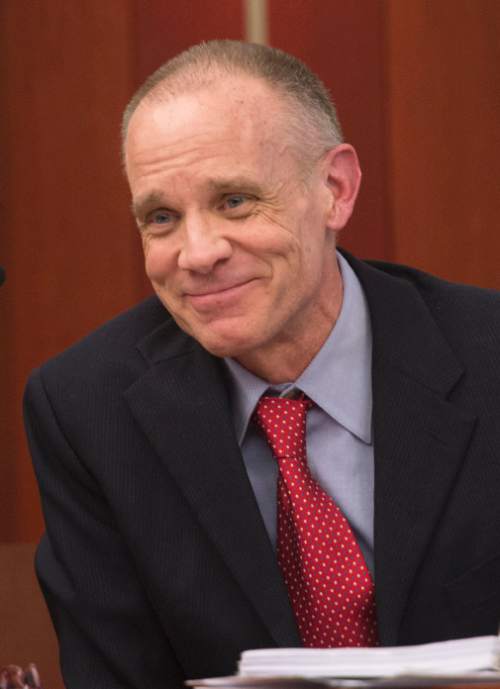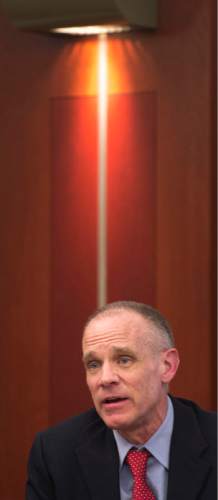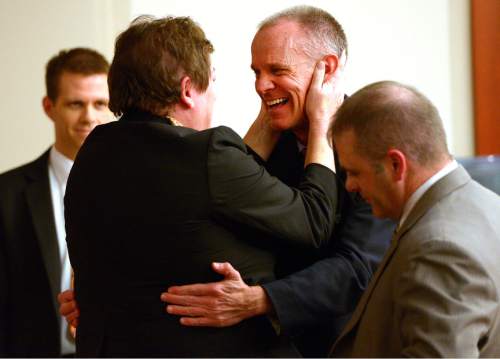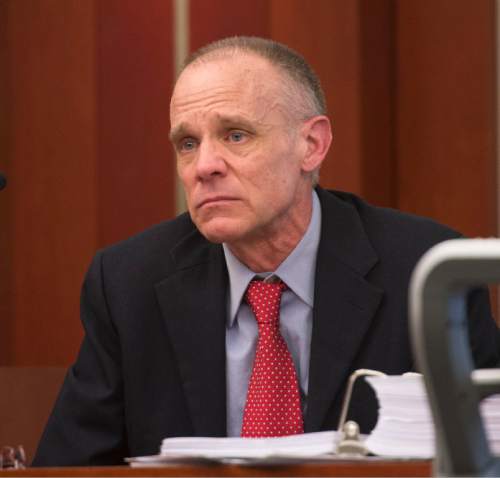This is an archived article that was published on sltrib.com in 2015, and information in the article may be outdated. It is provided only for personal research purposes and may not be reprinted.
After nearly four years of battling prosecutors, 10 days of court testimony and 14 hours of waiting on a jury's deliberations, the words Marc Sessions Jenson has long hoped to hear finally came:
"Not guilty."
With the pronouncement Friday evening, the 3rd District Court jury of five men and three women cleared the Utah businessman of eight counts of fraud and money laundering filed in connection with his failed real estate dream — Mount Holly, a multi-million-dollar private luxury golf and ski resort planned for the Tushar Mountains near Beaver.
A broadly smiling Jenson reached immediately to hug his three attorneys while, in the courtroom gallery behind him, some of his 10 siblings embraced one another and began to cry with relief and joy. Had Jenson been convicted of the crimes, he could have faced up to 15 years in prison each count.
"We're very gratified and thankful to the jury for the work that they did," defense attorney Marcus Mumford said. "It's obvious they took their time. They went through the evidence and they came out to the just verdict."
Deputy Utah County Attorney Tim Taylor said he both respected and accepted the outcome. "We trust the jury," said Taylor, whose office took over the case after the Utah attorney general's office declared a conflict of interest. "This was a failed business venture and ... it's tough, maybe, to hold someone accountable."
The attorney general's office filed the case in 2011, saying Jenson had failed to disclose required information to investors, including that he had past criminal convictions and personal bankruptcies and that the resort development was on the brink of foreclosure and threatened by lawsuits.
Mumford argued that the plans to transform the former Elk Meadows ski area into a private retreat of million-dollar homes and a Jack Nicklaus-designed golf course were real and would have succeeded if the New York hedge fund that had backed the project had not cut off its funds.
The three victims in the case, who claimed a combined $2.3 million in losses, had all been aware of Jenson's past, Mumford said, and had signed detailed contracts accepting the risks associated with big-money, speculative real estate deals.
The jury's verdict, Mumford said, appears to reflect their understanding that those victims had conspired to present a "united front" against Jenson to recoup their losses and over time had changed their stories about events and the information Jenson had disclosed. Documents presented in the case, including contracts and emails, supported those claims, Mumford said.
"I think the jury was able to see that their stories didn't match up with the evidence," he said.
Jenson's acquittal also helps support the claim that he was targeted for punishment by Utah's former attorneys general, Mumford said.
Throughout the trial, Mumford maintained Jenson was the victim of political payback orchestrated against him by former Utah Attorneys General Mark Shurtleff and John Swallow, who, Jenson told jurors, had helped negotiate his plea in abeyance in a 2005 securities fraud case, filed against him when Shurtleff was still Utah's top law enforcement officer.
In 2013, Jenson became a key player in the bribery and corruption investigation that left Shurtleff and Swallow charged with multiple felonies when he said the pair had pressured him for money and favors before and after he negotiated his plea deal.
Mumford sought to get both Shurtleff and Swallow on the stand through subpoenas, but both men invoked their Fifth Amendment rights.
"They could not testify in this case without incriminating themselves," he said. "I think it was an interesting contrast that Mr. Jenson had no problem taking the stand."
In a statement to The Salt Lake Tribune on Friday night, Shurtleff's attorney, Richard Van Wagoner, said the acquittal "supports and strengthens the fact that justice was best served" when Jenson resolved his 2005 case by entering no-contest pleas to three felony securities counts — "crimes for which he failed to pay millions in restitution to his victims and for which he is still serving time in prison," Van Wagoner wrote.
Jenson has been incarcerated since 2011 for failing to pay about $4.1 million in restitution required as part of that deal. Jenson testified he was instructed by Shurtleff and others in his office to pay $2 million in restitution directly to the victims instead of to the courts. Court records and other documents introduced during the trial show Jenson had resolved disputes with two of the three victims in the 2005 case before Shurtleff's office filed the case.
Mumford said he got some "important evidence" to support those claims from Assistant Utah Attorney General Scott Reed on the last day of the trial. Reed testified that he didn't remember "directing" Jenson to pay the restitution directly, but said that in the midst of plea negotiations he was more concerned about ensuring restitution was paid and "less concerned as to how it got to the victims."
Mumford said he plans to use Reed's testimony and other evidence to petition the court for Jenson's release from prison.
Stephen R. Jenson, Marc Jenson's brother, was originally charged as a co-defendant in the case. He pleaded no contest to three third-degree felony counts of communications fraud to resolve his case during the trial's second week. If the 49-year-old pays $275,000 in restitution by his March 30 sentencing day, the charges will be reduced to class B misdemeanors and prosecutors will recommend he serve no prison time or probation.


